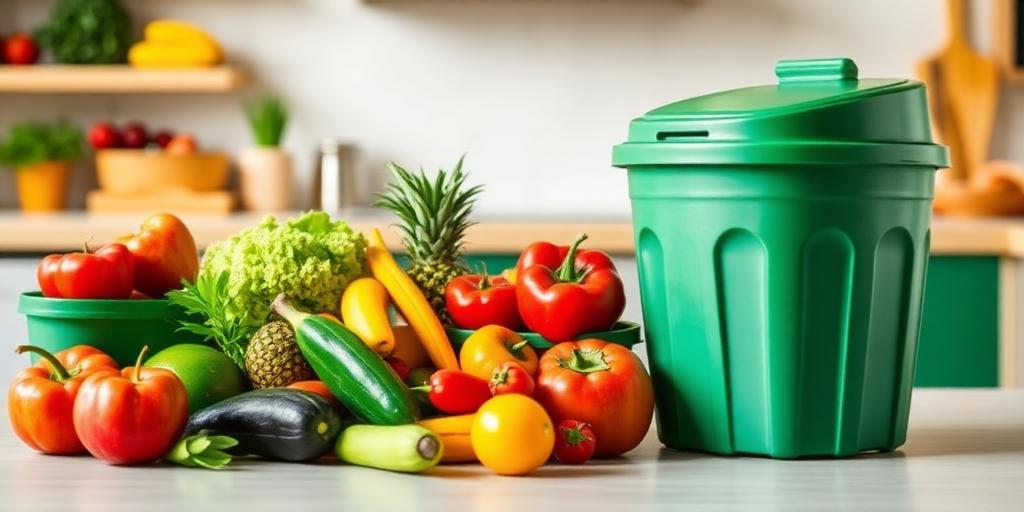How to Reduce Food Waste While Eating Healthy
In today's world, where environmental consciousness is on the rise, it's crucial to address the issue of food waste. Simultaneously, maintaining a healthy diet is essential for our well-being. This blog post will guide you on how to reduce food waste while ensuring you eat healthily.
1. Plan Your Meals
One of the most effective ways to reduce food waste is by planning your meals ahead of time. This involves:
- Creating a weekly menu: Outline what you'll eat for each meal.
- Making a shopping list: Stick to the ingredients you need for your planned meals.
- Checking your pantry and fridge: Avoid buying items you already have.
2. Store Food Properly
Proper food storage extends the shelf life of your groceries. Here are some tips:
- Use airtight containers: Store leftovers and opened packages in airtight containers to prevent spoilage.
- Keep fruits and vegetables fresh: Store them in the refrigerator's crisper drawers or use produce bags.
- Understand expiration dates: "Best by" or "sell by" dates indicate quality, not safety. Use your judgment to determine if food is still good to eat.
3. Embrace Imperfect Produce
Often, fruits and vegetables with minor imperfections are discarded. However, these items are still nutritious and safe to eat. Consider purchasing "ugly" produce from farmers' markets or grocery stores, or utilize a service like Misfits Market or Imperfect Foods.
4. Cook Smart
Efficient cooking practices can significantly reduce food waste:
- Cook in batches: Prepare larger quantities of food and freeze portions for later use.
- Use leftovers creatively: Transform leftovers into new meals. For instance, leftover roasted vegetables can be added to a frittata or salad.
- Utilize food scraps: Vegetable scraps can be used to make homemade broth.
5. Compost Food Waste
Composting is an excellent way to recycle food scraps that cannot be consumed. You can compost:
- Fruit and vegetable peels
- Coffee grounds
- Eggshells
Compost can then be used to enrich your garden soil.
6. Understand Portion Control
Serving appropriate portions can prevent food waste. Be mindful of how much food you need to feel satisfied, and avoid over-serving.
7. Freeze Strategically
Freezing is a fantastic way to preserve food that you can't use immediately:
- Freeze fruits and vegetables: Wash, chop, and freeze fruits and vegetables for smoothies or cooking.
- Freeze bread: Sliced bread can be frozen and thawed as needed.
- Freeze cooked meals: Leftovers can be frozen in individual portions for easy meal prepping.
8. Shop More Frequently
Instead of buying large quantities of food that may spoil before you can use them, shop more frequently for smaller amounts.
9. Rotate Your Stock
Use the "first in, first out" (FIFO) method. Place newer items at the back of your pantry or fridge and older items at the front, ensuring that you use them before they expire.
10. Educate Yourself
Stay informed about food waste reduction strategies and healthy eating habits. There are numerous resources available online and in libraries that can provide valuable information.
Conclusion
Reducing food waste while eating healthy is a multifaceted approach that requires awareness, planning, and effort. By implementing these strategies, you can minimize your environmental impact, save money, and enjoy nutritious meals. Embrace these practices, and contribute to a more sustainable and healthy lifestyle.








